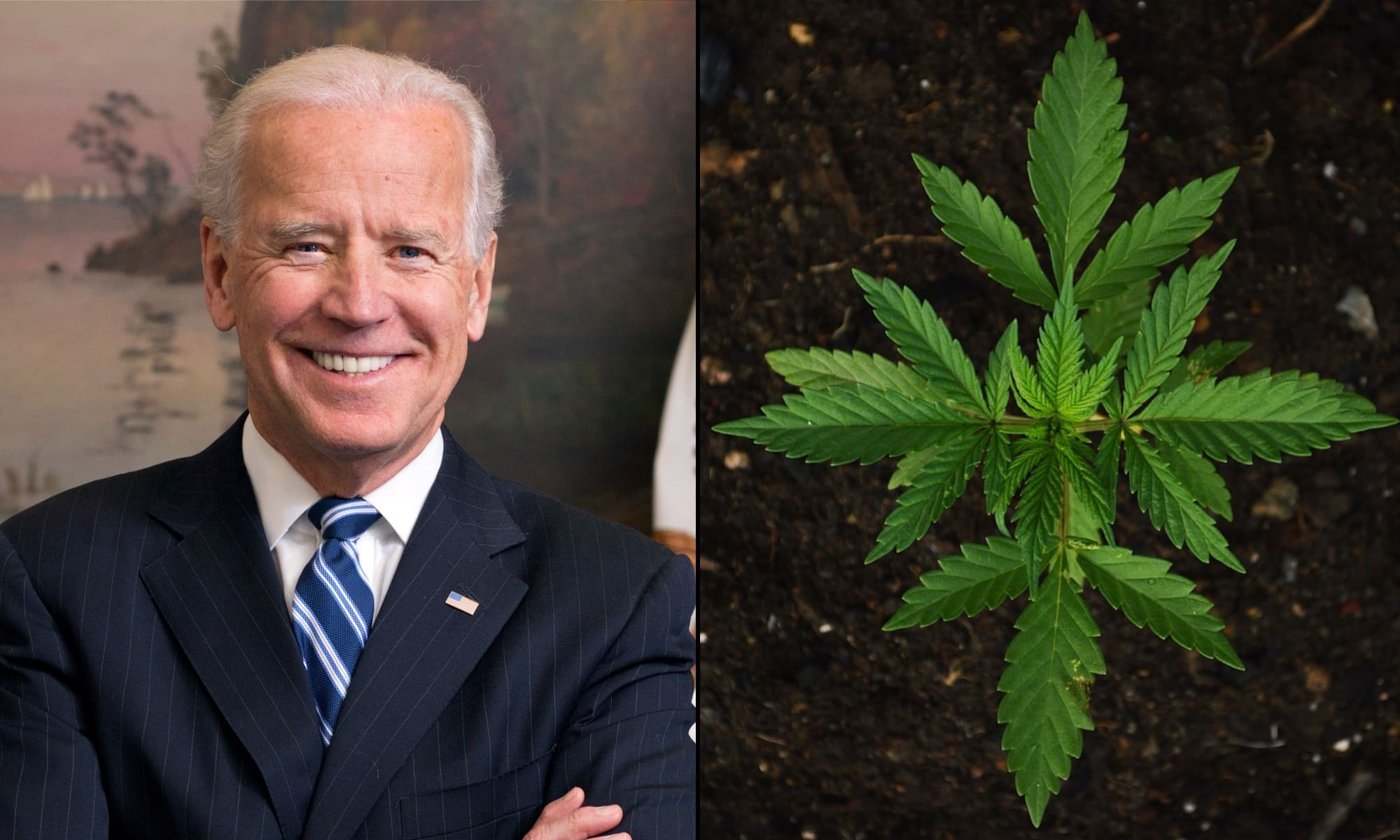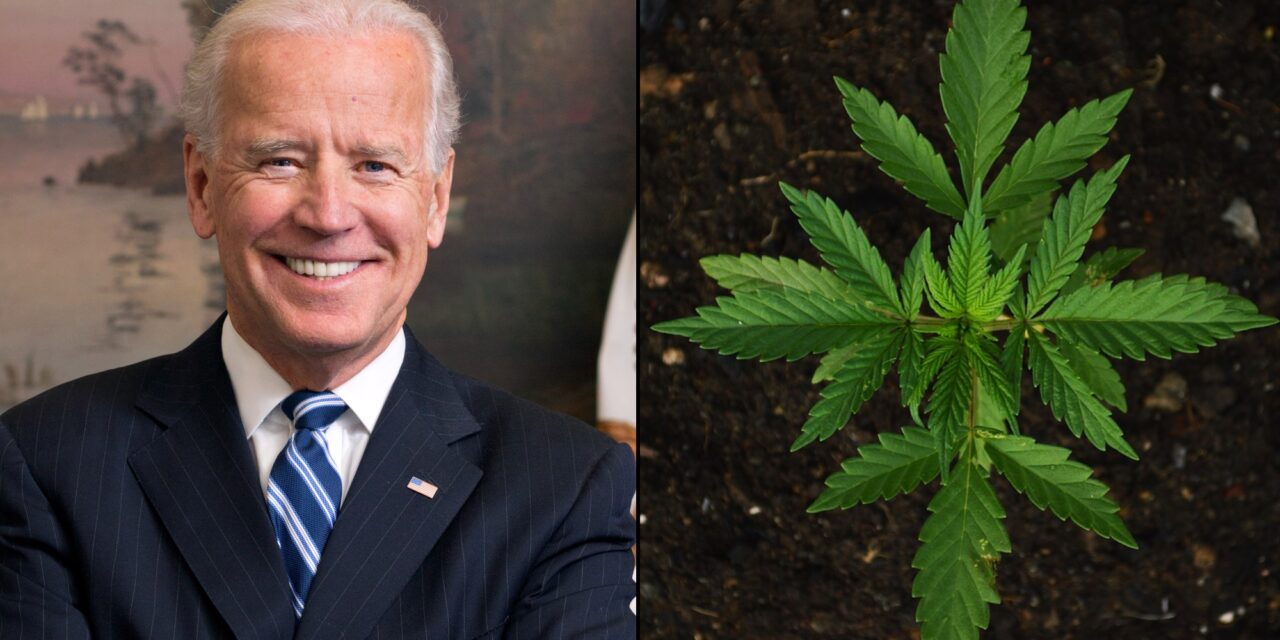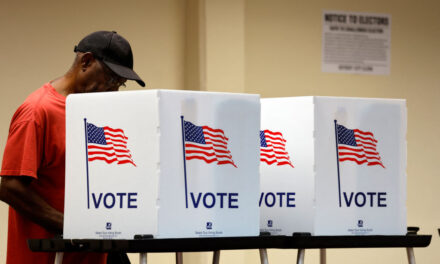
A coalition of 67 Democratic members of Congress are calling on President Joe Biden to expand on his executive clemency work in the final months of his term, citing his past marijuana pardons as an example of his ability to provide “life-changing” relief to Americans.
With Biden nearing the end of his time in office, Reps. Ayanna Pressley (D-MA), Jim Clyburn (D-SC) and Mary Gay Scanlon (D-PA) led a group of colleagues in a letter to the president on Wednesday, urging him to take advantage of these last weeks to exercise his authority to “reunite families, address longstanding injustices in our legal system, and set our nation on the path toward ending mass incarceration.”
At a press conference on Wednesday, lawmakers and advocates drew attention to the issue, pressing Biden to use his clemency powers before former President Donald Trump takes office again in January.
Mass incarceration is “a tragedy, and it is a damning commentary on the state of our nation,” Pressley said. “But there is a solution, and clemency is a part of that solution. President Biden can use clemency as a tool to put thousands of people on a pathway to healing and reunification with their families.”
Clyburn said that he doesn’t think “any family exists in these United States that have not in some way been affected by the injustices that sometimes are all too prevalent in our judicial system.”
“But the election of Joe Biden was a very positive consequence on this issue, and he’s already demonstrated that…when he used his clemency powers to address the injustices that existed in our drug laws and those penalties,” he said. “We’re here today to ask him to take another step in that direction and to demonstrate, once again, a very positive consequence of his having been elected our 46th president, and to carry out his clemency powers in a very positive way.”
In the letter, the lawmakers said the “bloated prison system reflects and emboldens biases that undermine the ideals of our nation and diminishes trust in the rule of law,” with mass incarceration “destabilizing families and inflicting intergenerational trauma.”
“Now is the time to use your clemency authority to rectify unjust and unnecessary criminal laws passed by Congress and draconian sentences given by judges,” they wrote. “The grant of pardons and commutations and the restoration of rights will undoubtedly send a powerful message across the country in support of fundamental fairness and furthering meaningful criminal justice reform.”
The coalition applauded the president’s “efforts to create a fair and just criminal legal system throughout your time in the White House,” including his use of clemency authority such as “pardoning people convicted of simple marijuana possession and LGBTQ+ former service members.”
The actions demonstrate Biden’s “understanding of its life-changing impact,” they said. “That is why we write in support of furthering those efforts and ask you to take decisive action to remove people from prison and reunite them with their loved ones and communities.”
“You have the support of millions of people across the country who have felt the harms of mass incarceration: young children longing to hug their grandparents, people who have taken responsibility for their mistakes, and those who simply were never given a fair chance. These are the people seeking help that only you can provide through the use of your presidential clemency power.”
While the letter doesn’t specifically call on Biden to grant additional marijuana pardons, advocates have been continuing pushing the administration for expanded cannabis clemency. Biden has so far limited his marijuana pardons to people who’ve committed federal marijuana possession offenses, none of whom were actively incarcerated, and so the hope is he will grant relief to those still serving time in federal prison over non-violent cannabis convictions.
“President Biden has the power to reunite families, but the clock is running out,” Jason Ortiz, director of strategic initiatives at Last Prisoner Project (LPP), told Marijuana Moment. “We implore the president to right history and shift our approach on cannabis from punitive punishment to compassionate clemency.”
Rep. Ilhan Omar (D-MN) noted at Wednesday’s event that the U.S. “represents just 5 percent of the world’s population, yet we hold more than 20 percent of the global prison population.”
“Over 1.9 million individuals are currently incarcerated, with a disproportionate impact on communities of color. Black men are incarcerated at more than five times the rate of white men—a legacy of systematic inequalities that have persisted for generations,” she said. “President Biden has a real opportunity to make a difference in these final days of his term, we are calling on him to act.”
Other signatories of the letter to Biden include Reps. Cori Bush (D-MO), Troy Carter (D-LA), Pramila Jayapal (D-WA), Rashida Tlaib (D-MI), Earl Blumenauer (D-OR), Bonnie Watson Coleman (D-NJ) and more. Organizations backing the call to action include LPP, ACLU and JustLeadershipUSA, for example.
More than 10,000 people are stuck in the clemency backlog.
With just over 60 days left in his presidency, I’m joining my colleagues & advocates in urging @POTUS to use his clemency authority to reunite families.
Tune in:https://t.co/ormYkK8c3s
— Congresswoman Ayanna Pressley (@RepPressley) November 20, 2024
In late September, the White House promoted the Biden-Harris administration’s marijuana policy accomplishments—though it used less lofty language to describe the actions—rather than broadly claiming premature victory in “ending” the country’s “failed approach” to cannabis, as it has in the past.
“President Biden issued categorical pardons of federal offenses of simple possession of marijuana—lifting barriers to housing, employment, educational opportunities, and more for thousands of Americans,” it said.
That’s not strictly true. Presidential pardons represent formal forgiveness, but as the president has more recently acknowledged, they did not expunge prior records, so it’s possible that collateral consequences could persist even with the symbolic relief.
Biden also directed a federal marijuana scheduling review that’s ultimately led the Justice Department to propose moving cannabis from Schedule I to Schedule III of the Controlled Substances Act (CSA). That rulemaking process is still underway, but likely will not be finalized before Trump assumes the Oval Office. The president-elect has voiced support for the rescheduling move, however.
Meanwhile, Biden also recently discussed his administration’s cannabis actions and reiterated his belief that criminalization over minor marijuana offenses is an outdated policy during a speech at the Congressional Black Caucus Foundation’s (CBCF) 2024 Phoenix Awards Dinner.
Read the letter to Biden on executive clemency action below:
Marijuana Moment is made possible with support from readers. If you rely on our cannabis advocacy journalism to stay informed, please consider a monthly Patreon pledge.




